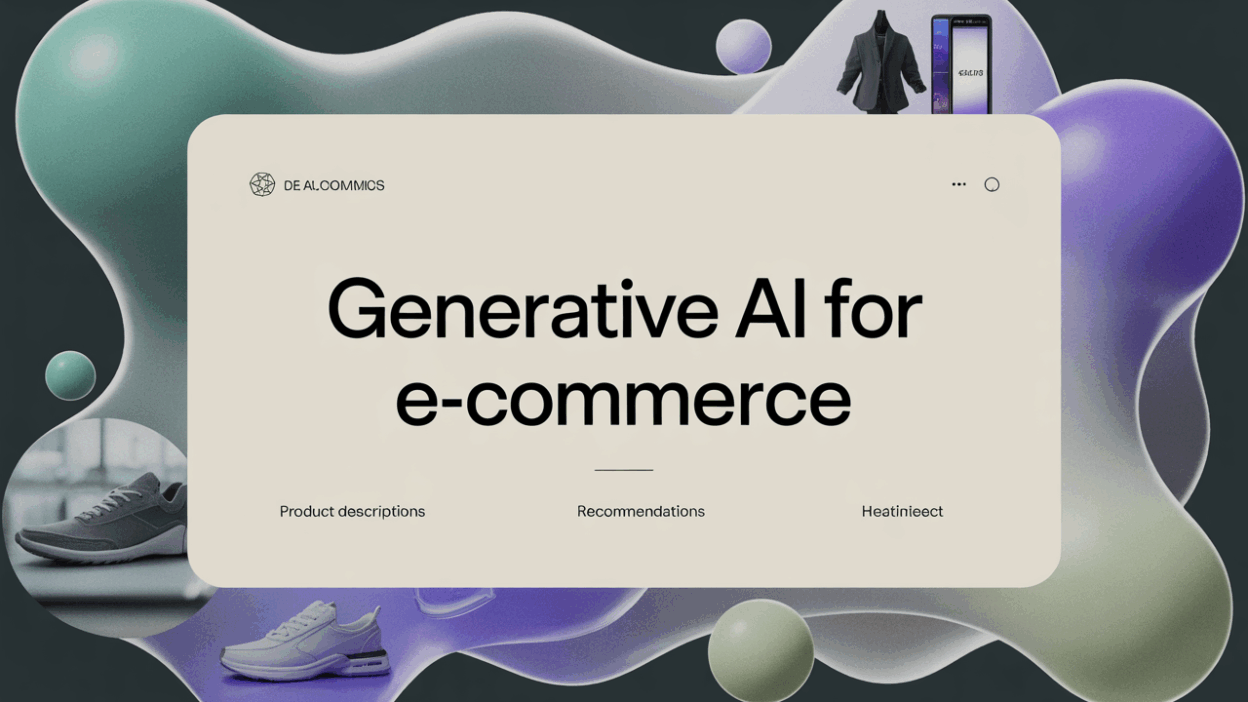Generative AI is transforming the e-commerce landscape, offering innovative solutions to enhance customer experiences and streamline operations. One of the most impactful applications of generative AI in e-commerce is its ability to improve product descriptions and personalized recommendations.
The Role of Generative AI in Product Descriptions
Creating compelling and accurate product descriptions is crucial for any online store. Generative AI can automate this process by generating dynamic, engaging content that highlights a product’s features while resonating with potential buyers . This technology enables businesses to maintain consistent quality across thousands of listings, ensuring that each product description is not only informative but also optimized for search engines, ultimately driving more traffic and increasing conversion rates .
Moreover, generative AI can produce high-quality images alongside textual descriptions, giving customers a richer understanding of the products they’re considering . By leveraging machine learning algorithms, e-commerce platforms can generate visuals that showcase products from multiple angles or even simulate how items would look in different settings, enhancing the overall shopping experience.
Personalized Recommendations Through Generative AI
Personalization has become a key factor in consumer satisfaction within the digital marketplace. Generative AI excels at providing tailored product recommendations based on individual user behavior, preferences, and past purchases . These intelligent systems analyze vast amounts of data to identify patterns and predict what products a customer might be interested in next. As a result, shoppers receive curated suggestions that feel uniquely suited to their needs, which increases engagement and fosters brand loyalty.
In addition to recommending specific products, generative AI can also personalize the entire shopping journey. For instance, virtual shopping assistants powered by AI can interact with customers in real-time, answering questions about products and guiding them through the purchasing process . Such interactions mimic those of human sales associates, creating an immersive and helpful environment for users who may need assistance navigating complex inventories or making final buying decisions.
Enhancing Customer Engagement With Real-Time Support
Beyond just improving product presentations and recommendations, generative AI contributes significantly to customer service. Chatbots equipped with generative capabilities offer immediate support to users, addressing common inquiries efficiently without requiring manual intervention . These tools are capable of delivering personalized messages, adjusting search results according to user intent, and even managing loyalty programs effectively—functions traditionally handled by dedicated teams but now automated thanks to advancements in natural language processing and other AI technologies.
By integrating these functionalities into existing platforms, retailers can ensure seamless communication between brands and consumers, thereby reducing response times and improving overall satisfaction levels among their clientele base.
Conclusion
As we move further into 2025, it becomes increasingly clear that generative AI will play a pivotal role in shaping the future of e-commerce. From crafting persuasive product narratives to offering customized shopping guidance, this technology empowers businesses to connect more deeply with their audiences than ever before. Those willing to embrace these innovations stand poised to gain significant competitive advantages in today’s fast-paced retail environments.


